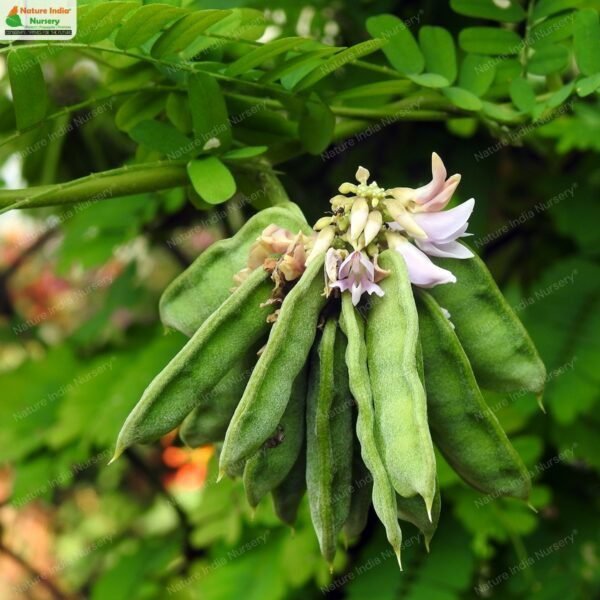The Coral Bead Vine (Abrus precatorius) is a twining vine native to tropical and subtropical regions around the world. It’s known for its delicate, white or pink pea-like flowers that bloom in clusters. The most striking feature of this plant is its bright red, glossy seeds, often used for making rosaries and jewelry (Important Note: These seeds are extremely poisonous if ingested and should be kept away from children and pets). The leaves are pinnately compound with small, oval leaflets. Abrus precatorius can grow up to 3-5 meters in length and thrives in warm, humid climates.
Habitat
The Rosary Pea prefers open woodlands, edges of forests, and disturbed areas in tropical and subtropical regions. It can tolerate partial shade but performs best in areas with full sun exposure. This plant is nitrogen-fixing, meaning it helps improve soil fertility.
Planting and Care
- Light: Full sun to partial shade
- Soil: Well-draining, moderately fertile soil
- Watering: Water regularly during the growing season, allowing the soil to dry slightly between waterings. Reduce watering in cooler months.
- Maintenance: Provide support for the twining vine. Prune lightly to maintain desired shape and remove spent flowers to encourage further blooming.
Additional Information
- The delicate flowers attract pollinators like bees and butterflies.
- Propagation can be done through seeds, but be aware of the poisonous nature of the seeds.
- Abrus precatorius is a fast-growing vine that can be a beautiful addition to a warm climate garden. However, exercise caution due to the toxicity of the seeds.
Please note: The bright red seeds of Abrus precatorius are highly poisonous and should never be ingested. Keep them out of reach of children and pets. This plant is not suitable for colder climates.




